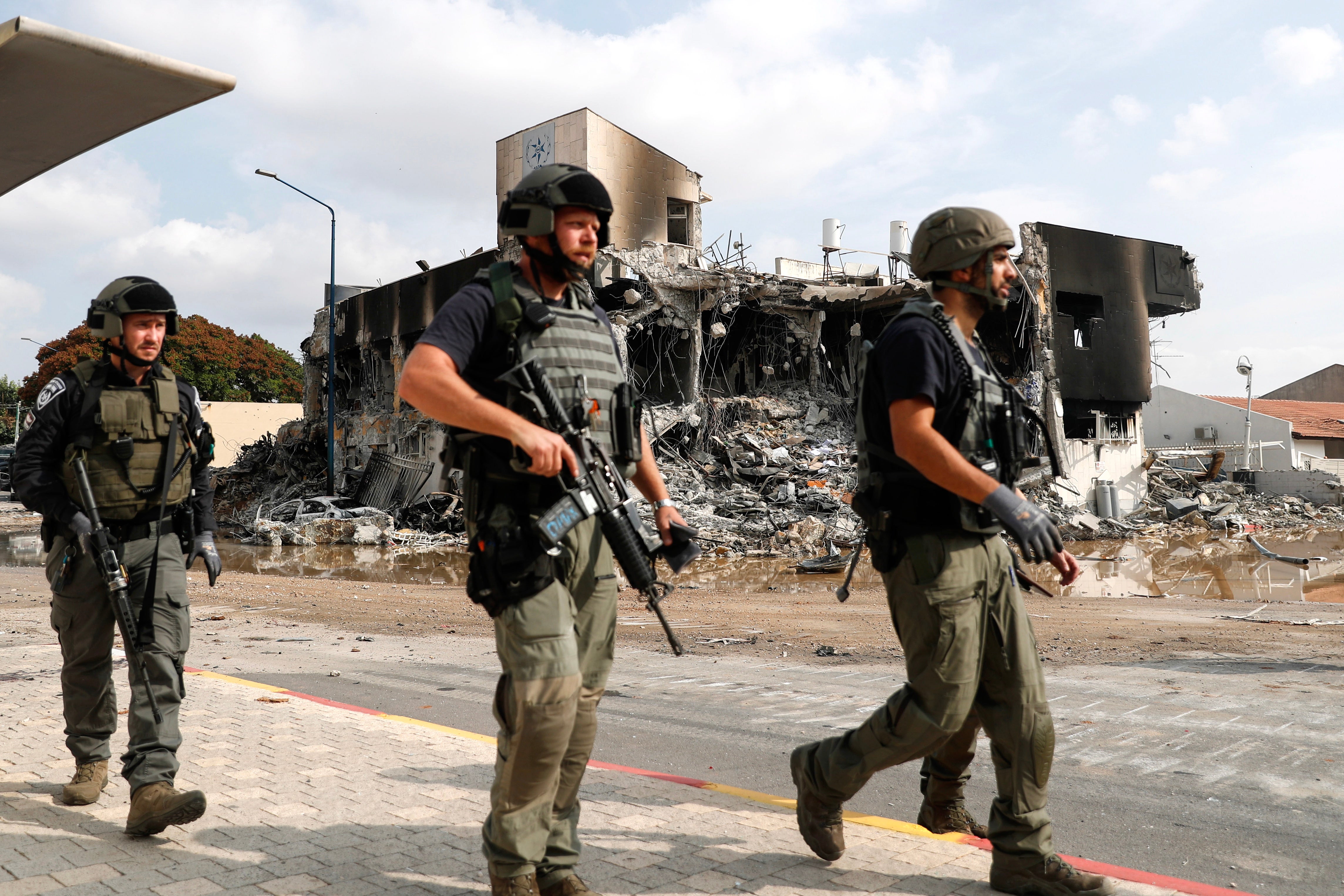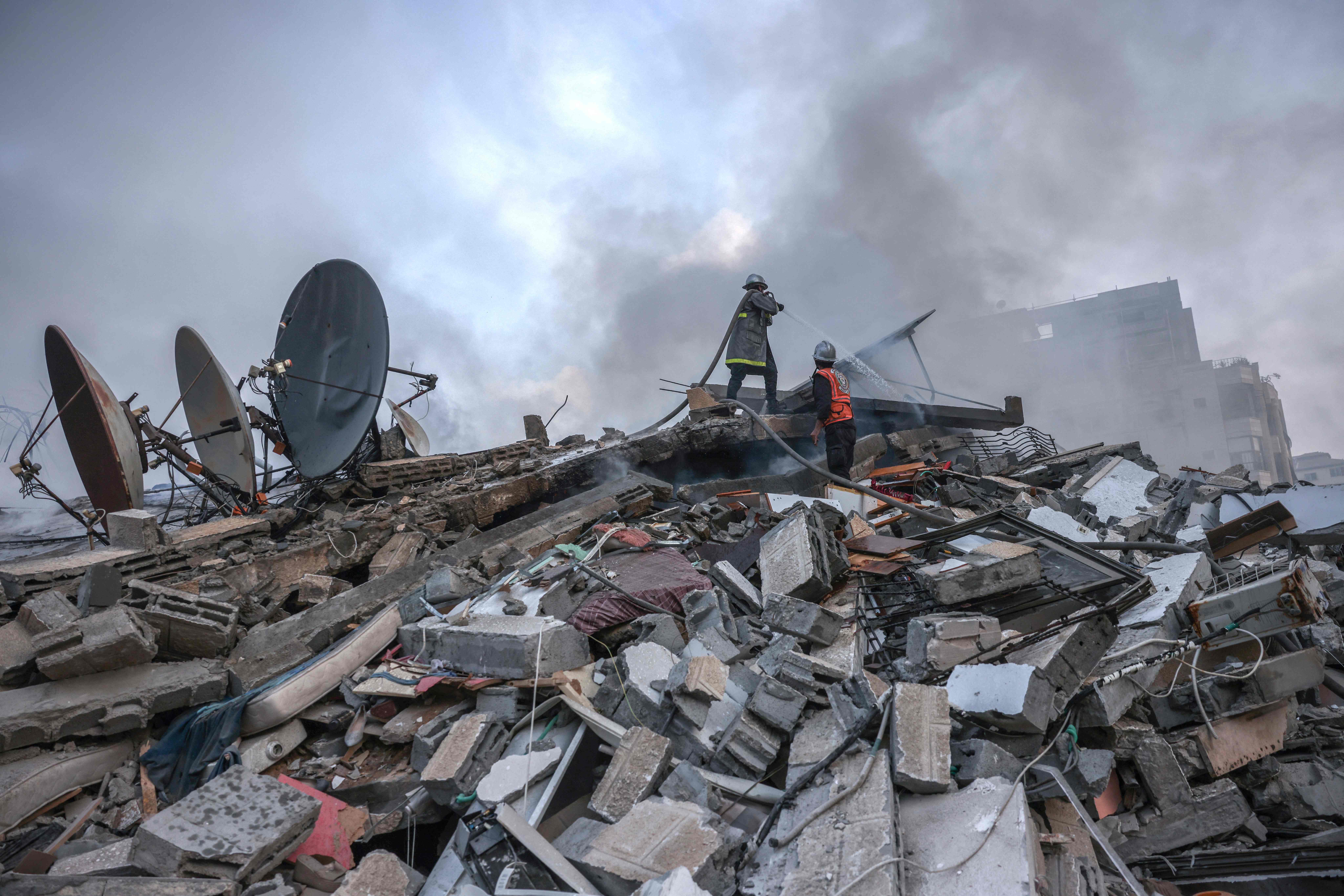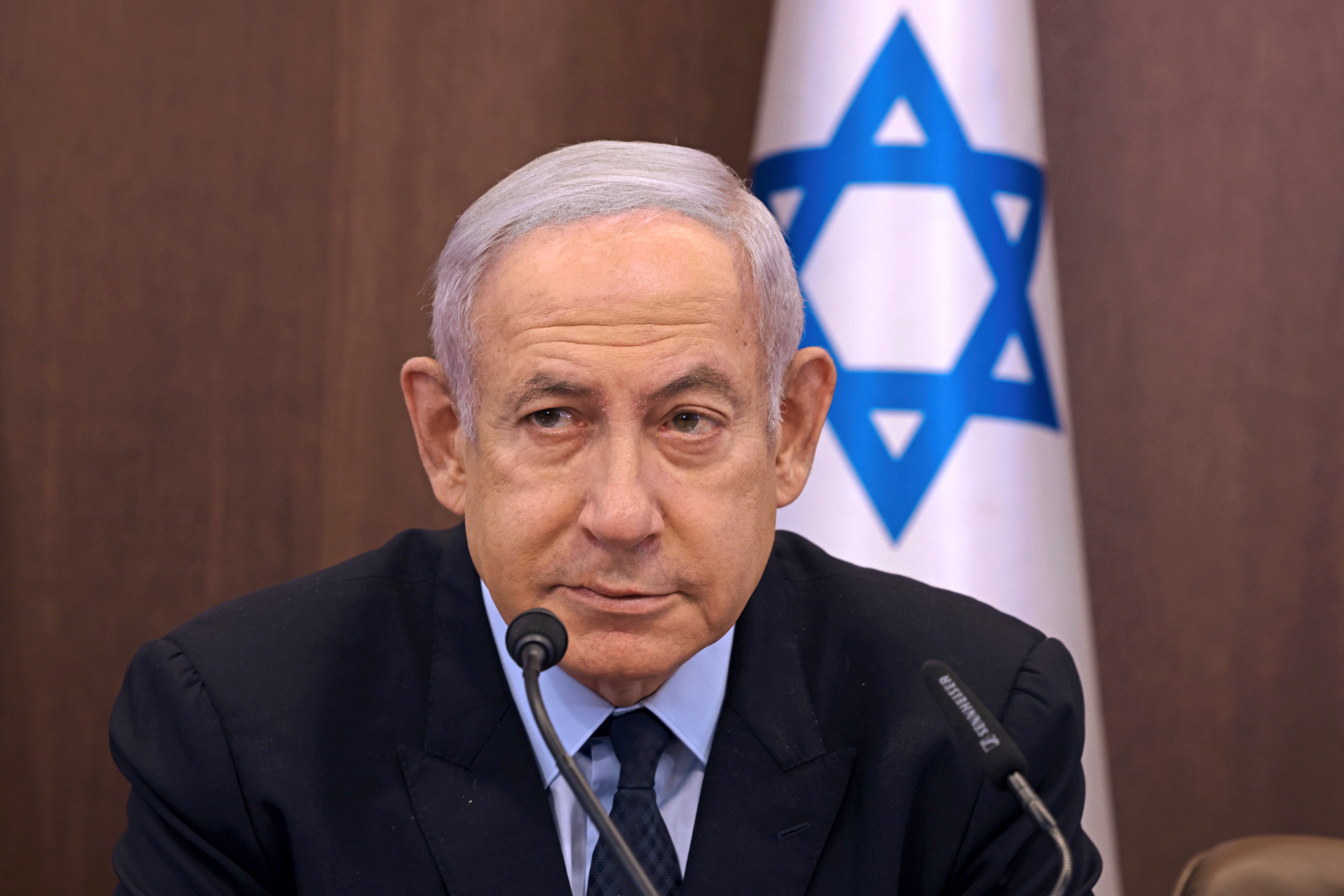Israel declares war on Hamas: Bloodshed is the only thing we can be sure of next
Facing the severest security crisis in decades, Benjamin Netanyahu will have to deal with a push for an all-out ground war from hardliners in his coalition government, writes Kim Sengupta. But it is unclear where that would lead beyond terrible loss of life


Your support helps us to tell the story
From reproductive rights to climate change to Big Tech, The Independent is on the ground when the story is developing. Whether it's investigating the financials of Elon Musk's pro-Trump PAC or producing our latest documentary, 'The A Word', which shines a light on the American women fighting for reproductive rights, we know how important it is to parse out the facts from the messaging.
At such a critical moment in US history, we need reporters on the ground. Your donation allows us to keep sending journalists to speak to both sides of the story.
The Independent is trusted by Americans across the entire political spectrum. And unlike many other quality news outlets, we choose not to lock Americans out of our reporting and analysis with paywalls. We believe quality journalism should be available to everyone, paid for by those who can afford it.
Your support makes all the difference.The killing of at least 700 Israelis in the carnage of the attack by Hamas is the most lethal day in the country’s many conflicts, exceeding by far the 317 killed on 7 October 1973, the first 24 hours of the Yom Kippur war, which had also started with the enemy achieving a total surprise attack to great effect.
Unlike that conflict, when multiple assaults came from Arab states led by Egypt and Syria, what happened this weekend is not an existential threat to the Jewish state.
Hamas, along with other militias which may join in the fight, like Hezbollah in Lebanon, are nowhere near being a military match for Israel. A reported request by the Taliban in Afghanistan to Iran to let its fighters transit to fight Israel is not going to change that balance, we can safely assume, if passage is granted.
But Benjamin Netanyahu’s government faces the severest security crisis in decades with the potential prospect of combat on two fronts, Lebanon and Gaza, as well as escalation in the West Bank where militant Palestinian groups such as the Jenin Brigade and Lion’s Den have already been involved in a rising number of armed clashes with Israeli security forces.
Images from the extraordinary Hamas assault, of fighters flying in on gliders to kill and kidnap, civilians getting shot in streets, abductions at a music festival and hostages being paraded in Gaza, have been a seismic shock to the system in Israel.
The colossal failure of the country’s much-vaunted intelligence system, which allowed Hamas to seemingly plan and arm itself for this operation for months, has been astonishing.
Along with “humint” (human intelligence) from agents on the ground, communications in Gaza are monitored, as are the movements of people and vehicles at the border, with the most advanced sensors. Israel carries out regular air strikes on the territory to ensure, it says, Hamas and Islamic Jihad, another militant group, do not build up stockpiles of weaponry such as missiles. A “decapitation” campaign – targeted killing of senior militant figures – supposedly denudes command and control.
What went so wrong will be examined by boards of inquiries in the future and will almost certainly lead to resignations and sackings in the security hierarchy. The scale of the failure was summed up by Efraim Halevy, the former head of Mossad, who acknowledged: “This attack was beyond imagination. We didn’t know they had this quantity of missiles, and we certainly didn’t expect they would be so effective as they were.”
What happens now? The Israeli government has formally declared that it is at war. Netanyahu has pledged “mighty violence”, threatened to reduce Gaza to “rubble” and told its inhabitants to leave immediately, although it is unclear where they are meant to go.
There are now predictions that a full-scale land offensive, to go with the massive air strikes already taking place, will be launched into Gaza by Israel. But how effective will this be, and what is the end purpose?

I covered the 2014 Gaza war, far deadlier than any of the Gaza conflicts previously or since, inside Gaza. Ground forces were sent in by Israel along with Merkava tanks. It was a brutal affair. More than 2,205 Palestinians were killed, including 1,483 civilians, according to the UN, and 71 Israelis, 66 of them soldiers, in 50 days of fighting.
I recall speaking to Israeli Defence Force (IDF) officers afterwards about the efficacy of using infantry and armour in densely populated urban areas. Several expressed deep reservations and said that targeted, forensic Special Forces operations would have been much more preferable.
What makes a full ground assault even more problematic this time is the presence of so many hostages in Gaza. There is always the danger of them getting injured or killed if caught up in combat. Special Forces operations to rescue them are possible, albeit a challenging task as they are likely to be held in differing locations including, possibly, hospitals.

The tense political and social climate in Israel, with emotions understandably running high, will help shape the nature and extent of the military mission. The 2014 offensive was in the end limited on the advice of the military and intelligence services who warned of mounting civilian losses amid forces being bogged down in months of attritional combat.
Netanyahu, who was the prime minister then as well, overrode the demands of hardliners in his cabinet, including Avigdor Lieberman, the foreign secretary, to reoccupy Gaza reversing the pullout of 2005.
The current coalition government is far more right wing and there is likely to be a greater push for all-out war, goes the argument. But Netanyahu has, in the past, shown a disinclination for such open-ended military gambits and, with the backing of the security hierarchy, who are alarmed by far-right ministers like Itamar Ben-Gvir, a more nuanced and tactical approach may emerge.
Armed action is not the only course of punitive action available to Israel at present. The energy minister, Israel Katz, announced at the weekend that he had ordered cutting off electricity to Gaza. This could be followed by the blocking of fuel and water supplies.
These measures will not by themselves prevent the bloodshed ahead, too much has happened for that to be the case. In the gathering darkness, the most realistic hope is that the conflict unfolding does not totally get out of control.



Join our commenting forum
Join thought-provoking conversations, follow other Independent readers and see their replies
0Comments